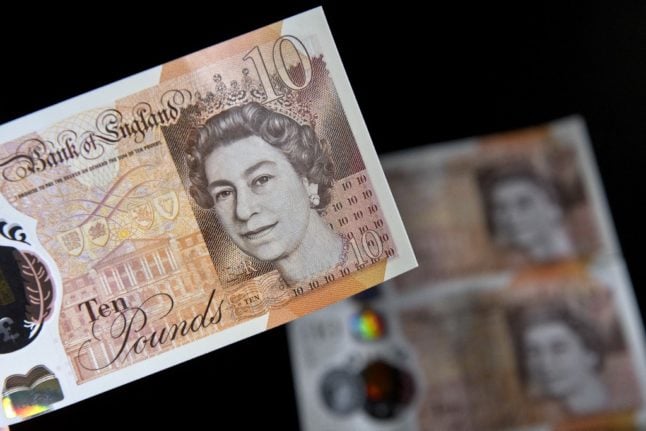The British pound experienced a record 37-year low against the dollar on Monday, following on from a months-long fall in its value.
UK markets remain highly volatile, with the Bank of England intervening on Wednesday to buy government bonds in order to prevent a “material risk” to stability.
A slide in the value of the sterling could increase energy costs and the price of goods and services imported into the UK, as well as result in higher repayments for some mortgages.
That’s in the UK, but how about for Britons living in Spain? On Wednesday we asked our readers to tell us how they’ve already been affected and what they expect the ongoing impact of a weak pound will be on their lives unless the currency bounces back.
We received answers to our survey from all corners of Spain, from Alicante to Almería, the Canaries to the Balearics and Malaga to Galicia.
The overwhelming response was that the drop in value of the pound will have a negative impact on the lives of UK nationals in Spain, although to varying degrees.
Numerous readers said it would “significantly affect” their standards of living in Spain, that “money is tight” already and that overall, it would make “life a lot more challenging”.
Most respondents referred to what it means for them in terms of receiving a salary, a pension, some form of UK income or even having savings in a UK account which they transfer over, the major negative being when it comes to the unfavourable exchange rate.
“I receive my pension (state and private) in pounds, but spend it wholly in euros. Of course, it’s made life more difficult,” one reader in the Asturian village of Mier in northern Spain told The Local.
“Having quit the UK permanently due to Brexit, managed to negotiate residency, health, driving and all the other bureaucracy in a foreign language, we’ve sold our house in the UK and need to transfer the money across. It goes without saying that this will cost us thousands in exchange rates. God, I absolutely loathe those ‘f……g’ Tories!”
Another Briton in Almería (Andalusia) said: “My husband and I both have UK pensions on which we rely to live. We are worse off this month by over €100 at a time of rampant inflation.”
“We will need to cut back somewhere,” a reader in Alicante acknowledged. “All my pension income is in sterling and the recent drop has caused a substantial reduction in the value in euros.”
Another reader said: “We receive our income in pounds and transfer funds when the exchange rate is favourable. Obviously, not at the moment!”
On another expats in Spain group on Facebook, one Briton commented on what the weak pound meant in terms of large purchases: “We were going to buy a motorhome for €72,000. Exchange rate a week ago was £60,000, now €72,000 is £64,800. So, no motorhome at the moment. I feel sorry for these people who have bought property at hundreds of thousands and have to transfer money from the UK.”
On the other hand, some readers responded to our survey by saying that the pound’s drop would have “little impact” on their lives or that it would “just mean spending a little less”.
“I get less than 10 percent of my income from the UK while my expenditure is in euros. The fall in the value of sterling is annoying rather than lifestyle-threatening. On the other hand, trips back to the UK will feel cheaper,” one reader argued.
“I have a lump sum to live off with a pension due in three years. I became aware of the pound falling dramatically just over a month ago, so I used my wife’s bank account to change my currency into US dollars,” another Briton in Spain explained.
“I’ve actually made quite a bit of money so I’m happy with that. Hopefully a change of government in two years’ time, (if Truss lasts that long) will help reverse the pound’s fortune and all will be well for my pension.”



 Please whitelist us to continue reading.
Please whitelist us to continue reading.
Member comments